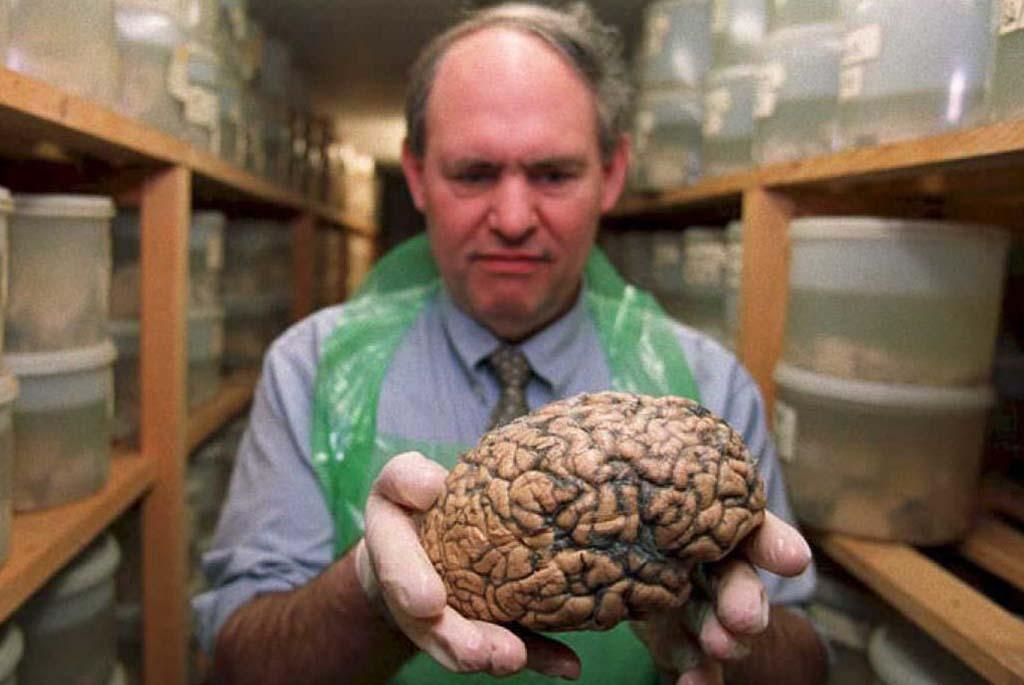Positive thinkers may be at risk of harm, says study
LONDON. Dr. Clive Bruton, a neuropathologist at Runwell Psychiatric Hospital in Essex, England, holds one of 8,000 brains stored in what is the largest ‘brain bank’ in the world.
A British study has found that positive people could be less inclined to take preventive actions against disasters.
It all began when Professor Tali Sharot from University College London became intrigued as to why so many people stay stubbornly optimistic when faced with great odds, reports Agence France Presse.
He got 19 volunteers to take part in an experiment, in which they were monitored using a “functional magnetic resonance imaging scanner” as they were confronted with various life situations.
These ranged from unpleasant to catastrophic (think losing your job, to be being diagnosed with cancer).
(Read more on GlobalPost: IBM unveils new "brain chip")
The study’s findings, published in the journal Nature Neuroscience, suggested the brain was adept at processing good news, while in some people, bad news was practically ignored.
Scientists at University College London said about 80 percent of people were “optimists”, even if they did not consider themselves to be so, reported the BBC:
When the news was positive, all people had more activity in the brain's frontal lobes, which are associated with processing errors.
With negative information, the most optimistic people had the least activity in the frontal lobes, while the least optimistic had the most.
According to Dr Sharot, the study’s findings tell us that smoking warning messages on cigarette packets, for example, are fruitless, because “people think their chances of cancer are low”.
Same goes for divorce rates, because optimists suffer from a fundamental bias in the brain.
The story you just read is accessible and free to all because thousands of listeners and readers contribute to our nonprofit newsroom. We go deep to bring you the human-centered international reporting that you know you can trust. To do this work and to do it well, we rely on the support of our listeners. If you appreciated our coverage this year, if there was a story that made you pause or a song that moved you, would you consider making a gift to sustain our work through 2024 and beyond?
